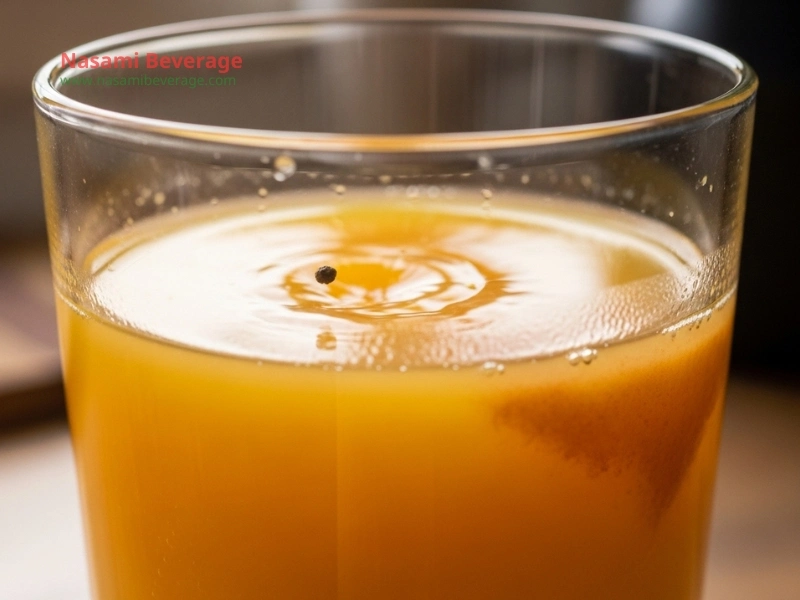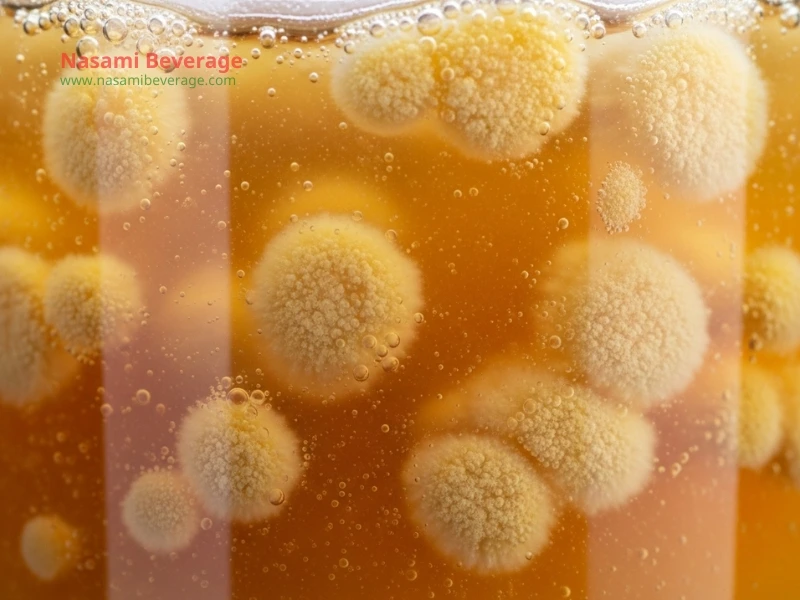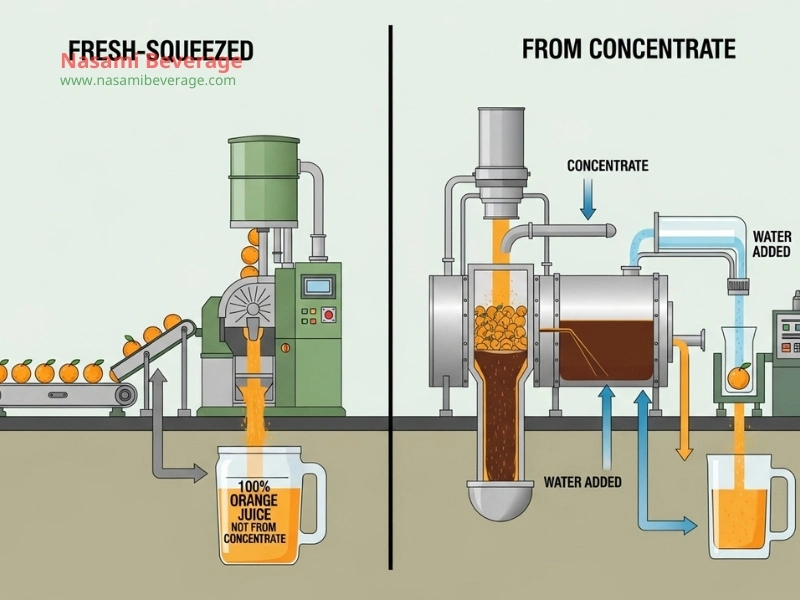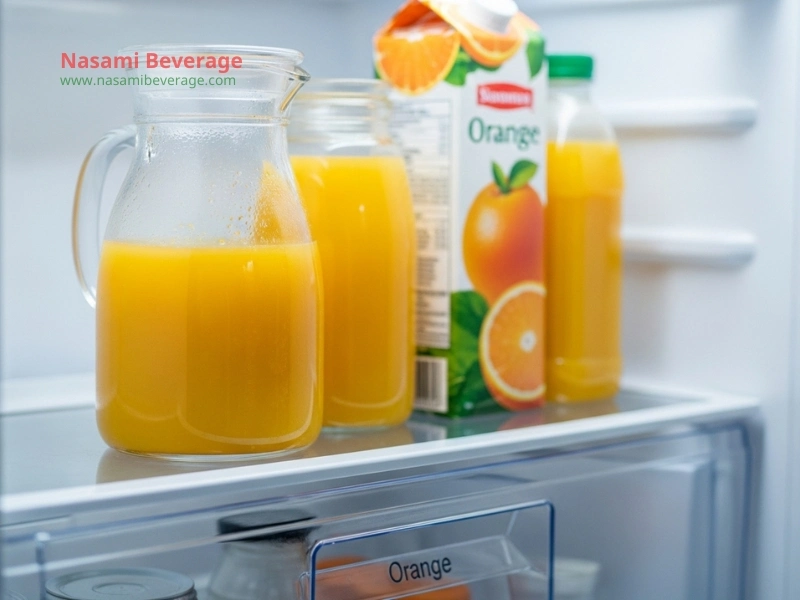Bad orange juice can be a truly unpleasant start to your day. That first sip should be a burst of sunshine, not a sour surprise. But why does this happen? Why does your Nasami Beverage orange juice sometimes taste “off”? This article will delve into the common reasons behind sour orange juice, from spoilage and improper storage to processing problems and even the oranges themselves. We’ll equip you with the knowledge to spot spoiled juice, understand what impacts flavor, and ultimately, avoid future disappointments, ensuring you enjoy the best possible orange juice experience.
The Unpleasant Surprise of Bad Orange Juice
Orange juice. A breakfast staple, a refreshing midday pick-me-up, and a vital source of vitamin C. But what happens when that vibrant, citrusy nectar turns into a sour, unpleasant concoction? It’s a morning mood killer, to say the least.
Setting the Scene – That First Disappointing Sip

You reach for your trusted carton of orange juice, maybe a Tropicana, Minute Maid, or even Simply Orange. You pour a glass, anticipating that familiar zing. But instead of a bright, refreshing taste, you’re greeted with a sour, almost vinegary flavor. Unlock the Mystery of Sour Orange Juice What went wrong?
Why Orange Juice Can Go Wrong – A Brief Overview
The reasons behind bad orange juice are multifaceted. Spoilage, due to bacterial or mold growth, is a common culprit. However, storage conditions, processing methods, and even the quality of the oranges themselves can play significant roles. The Truth About That Weird Orange Juice Taste Let’s explore these factors in detail.
Spoilage – The Main Culprit Behind the Off-Flavor
The most frequent reason for bad-tasting orange juice is spoilage. Orange juice, like any other perishable food, is susceptible to the growth of microorganisms that can alter its taste, smell, and appearance.
The Role of Bacteria and Mold
Bacteria and mold thrive in environments with moisture and nutrients – precisely what orange juice provides. These microorganisms consume the sugars in the juice, producing byproducts that lead to that characteristic sour or fermented taste. Is Your Orange Juice Trying to Poison You? Common culprits include Lactobacillus and various types of mold.
Signs of Spoilage – Sight, Smell, and Taste Clues
How can you tell if your orange juice has spoiled? Here are some telltale signs:

* Sour or bitter taste: This is the most obvious indicator.
* Unpleasant odor: A vinegary, fermented, or “off” smell.
* Change in color: Darkening, browning, or unusual discoloration.
* Thickened or slimy texture: A departure from the usual liquid consistency.
* Visible mold: Although not always present, mold growth is a clear sign of spoilage. Don’t Drink That! Identifying Spoiled Orange Juice
Storage is Key – Preventing Premature Spoilage
Proper storage is crucial for extending the shelf life of orange juice and preventing spoilage.
The Importance of Refrigeration
Refrigeration slows down the growth of bacteria and mold. Always refrigerate orange juice immediately after opening, and keep it consistently chilled at 40°F (4°C) or below.
Proper Container Sealing: Keeping Out Contaminants
A tightly sealed container prevents contaminants from entering the juice and helps maintain its quality. Ensure the cap is securely closed after each use. Consider transferring opened juice to a smaller, airtight container to minimize air exposure.
Processing Problems – How Production Affects Taste
The way orange juice is processed can significantly impact its taste and shelf life.
Fresh-Squeezed vs. Concentrate – A World of Difference

Fresh-squeezed orange juice, with its natural sweetness and vibrant flavor, is often considered the gold standard. However, it has a shorter shelf life and is more susceptible to spoilage. Concentrate, on the other hand, undergoes a process of water extraction and pasteurization, extending its shelf life but potentially altering its flavor. The Shocking Reason Your OJ Tastes Awful Brands like Florida’s Natural often emphasize their fresh-squeezed approach.
Pasteurization and Preservation – Finding the Right Balance
Pasteurization is a heat treatment that kills harmful bacteria and extends shelf life. While pasteurization is essential for food safety, it can also affect the flavor of orange juice. Some brands use gentler pasteurization methods to minimize flavor loss.
Beyond Spoilage – Other Reasons for Unpleasant Taste
While spoilage is the most common cause, other factors can contribute to bad-tasting orange juice.
Orange Variety and Ripeness – The Starting Point
The variety and ripeness of the oranges used to make the juice can significantly impact its flavor. Unripe oranges can produce a sour or bitter taste, while overripe oranges can have a fermented flavor.
Contamination During Handling – Avoiding External Factors
Contamination during handling, whether at the processing plant or in your own kitchen, can introduce bacteria and affect the taste of the juice. Always use clean utensils and avoid leaving orange juice at room temperature for extended periods.
How To Prevent Bad Orange Juice and Ensure the Best Flavor
Here are some practical tips to prevent bad orange juice and enjoy the best possible flavor:
Buy Orange Juice Within Expiration Date

Always check the expiration date on the carton before purchasing. Choose the freshest product available.
Avoid fluctuating temperatures and store in the fridge
Store orange juice in the refrigerator at a consistent temperature of 40°F (4°C) or below. Avoid storing it in the refrigerator door, where temperatures can fluctuate.
FAQ
How long does opened orange juice last in the fridge?
Generally, opened orange juice will last for 7-10 days in the refrigerator.
Can you drink orange juice after the expiration date?
It’s best to discard orange juice after the expiration date, as its quality and safety may be compromised.
What does spoiled orange juice taste like?
Spoiled orange juice typically tastes sour, bitter, or fermented.
Is it safe to drink orange juice with pulp?
Yes, orange juice with pulp is generally safe to drink.
What kind of bacteria can grow in orange juice?
Common bacteria that can grow in orange juice include Lactobacillus and various types of mold. Even Ocean Spray*, usually known for cranberry juice, can be affected if their OJ options aren’t stored properly.
Bad orange juice is a disappointment no one wants. By understanding the factors that contribute to spoilage and unpleasant taste, you can take steps to prevent it. Pay attention to storage, processing methods, and the signs of spoilage. With a little knowledge and care, you can ensure that your morning glass of orange juice is always a delicious and refreshing experience. Remember, Orange Juice Gone Rogue? Here’s What Happened proper handling makes all the difference.
This guide to understanding bad orange juice and how to avoid it was brought to you by Nasami Beverage, your trusted source for information on all things juice-related. We hope this helps you in your quest for the perfect glass of orange juice!
